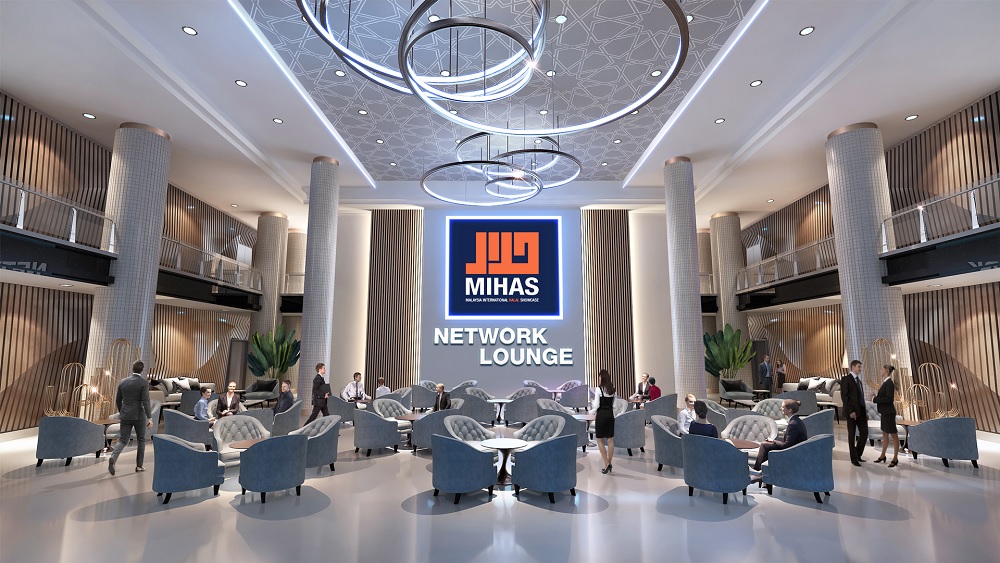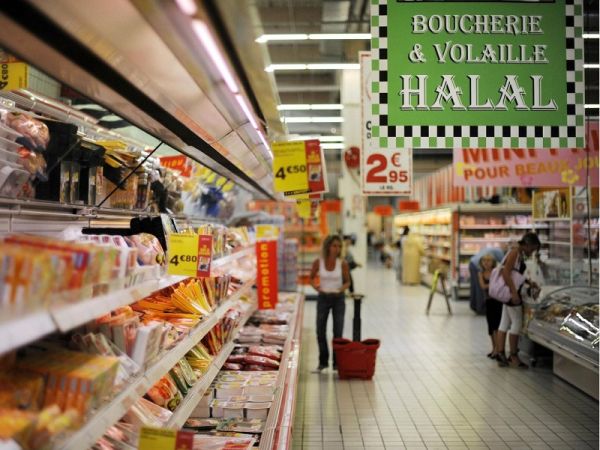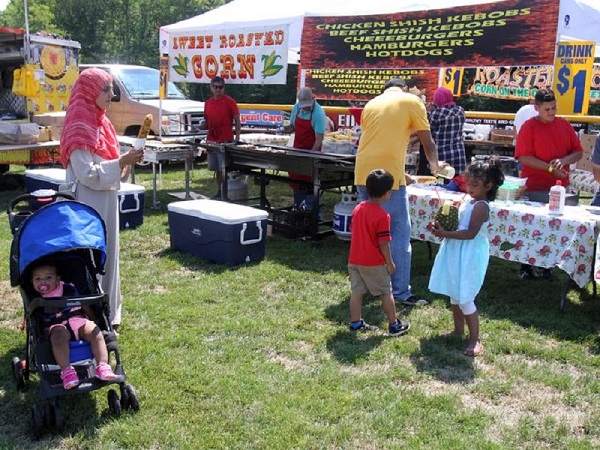
by Editor | Jul 8, 2022 | Halal Food, Halal Industries, Halal Medicine
The halal industry is rapidly growing across the globe. Rather excitingly, Malaysia is a major player within the industry and looks set to further strengthen its position in the coming years.
According to the State of the Global Islamic Economy (SGIE) Report 2020/2021,Malaysia is ranked 1st in the sectors of Halal Food, Muslim-Friendly Travel, cosmetics, and pharmaceuticals.
Malaysia’s strong performance in these sectors along with being a top Muslim-friendly destination among the Organisation of Islamic Cooperation (OIC) countries augurs well for the nation’s economic revival post-pandemic.
Key areas for growth
Malaysia External Trade Development Corporation (MATRADE) hopes to spearhead the country’s efforts in the halal industry. The Malaysia International Halal Showcase (MIHAS), which concluded its 17th edition in December 2021 is one of the key pioneering projects that MATRADE has initiated towards realising this aim.
Themed ‘Empowering Halal, Tomorrow, Together’ and with the aim of positioning Malaysia as the world’s main halal hub, MIHAS 2021 prevailed in its efforts, as testified by the strong performance by all the exhibitors especially Malaysian exporters.
MATRADE identified twelve key pillars that collectively can represent the global halal industry, all of which were showcased at the event. The event connected fellow exhibitors with local and international manufacturers, entrepreneurs, and agents as well as event visitors and members of the public.
The 12 pillars showcased were:
- Food and beverage
- Education
- Pharmaceuticals
- Services and enablers
- Franchise
- Modest fashion
- Islamic finance
- Cosmetics and personal care
- Media and recreation
- Muslim friendly travel
- e-commerce and
- Food technology
According to the SGIE report cited earlier, approximately 1.9 billion Muslims spent a total of US$ 2.02 trillion in 2019 on the five sectors of food, fashion, pharmaceutical, media/recreation, and travel.
Halal Food & Beverage
The department of statistics Malaysia & JAKIM estimates Malaysia’s halal F&B sector export value increased by 10.4% from the previous year to RM22.0 billion in 2019. This is largely due to the strength of the Malaysia’s processed food sector, which continues to expand and strengthen its manufacturing capabilities, producing products that are attuned to global standards.
Food Technology
The 2021 Budget covered various initiatives that focused on technology deployment and enhancement in the halal industry. Some of the areas that are given focus on including the technology required to ensure food traceability to verify authenticity of the products, including its ingredients to ensure authenticity of the halal food and beverage.
Technologies such as serialisation, artificial intelligence (AI), machine learning (ML), Internet of Things (IoT) and blockchain technology along with food science are being used as part of the Malaysian government’s policy to be globally competitive.
Modest Fashion
Modest or Islamic fashion is no longer just a movement but a billion-dollar industry that has gone global. According to the SGIE report, this sector currently has a value of US$277 billion.
MATRADE has been an instrumental figure behind the scenes in the modest fashion industry by regularly promoting homegrown businesses and connecting them to potential buyers and fashion designers globally. It also facilitates the participation of Malaysian fashion designers in industry events such as Fashion Weeks to grow brand awareness and develop market access.
Cosmetics & Personal Care
The halal cosmetics and personal care sector in Malaysia is gaining strong traction amongst global industry players and consumers. Halal cosmetics and personal care products are also sought after by non-Muslims, as many seek natural, chemical-free, and safe products.
Malaysia is also ranked first in the cosmetics and pharmaceuticals sector, according to the SGIE report. With the halal cosmetics and personal care sector in Malaysia showing prospective potential, many more Malaysian SMEs are emerging and making a name for themselves in the market.
Pharmaceuticals
Modern medicine may contain ingredients that are non-halal or manufactured in a way that does not align with Islamic values. This situation opens a multitude of doors for the halal pharmaceutical industry.
Malaysia is the trailblazer in the certified halal pharmaceutical industry and with MIHAS 2021 serving as a platform that connects the nation to the world, greater opportunity arises for Malaysian pharmaceutical manufacturers to be more competitive internationally.
Malaysia is ranked first in the list of best Muslim-friendly holiday destinations according to the Master Card-Crescent Rating Global Muslim Travel Index (GMTI) 2021.
Taking full advantage of this is the Islamic Tourism Centre (ITC) that collaborated with MIHAS 2021 to organise a forum on Muslim-friendly tourism and hospitality. The forum presented keynote speeches, interactive panel discussions, and specialist presentations that explore the potentials to emerge in the Muslim travel market as well as perspectives from industry leaders.
Among the 12 pillars, sectors that recorded the highest total sales during the virtual exhibition were Islamic financial services, food & beverage, pharmaceuticals, cosmetics, and personal care. MATRADE aims for MIHAS 2022 to achieve more revenue and exposure by integrating a hybrid format of both physical and virtual configurations.

by admin | May 25, 2021 | Halal Industries, Opinions
By Mufti Jaseemuddin Qasmi, Coordinator, Online Darul Ifta, MMERC, Mumbai

Mufti Jaseemuddin Qasmi
A post in Hindi is viral on social media in the last few months in which a journalist from Bhopal, Anam Ibrahim, claims that he carried out independent investigation about KFC and he writes that KFC is duping customers by serving non-halal chicken and using fake halal certificates. Ibrahim got an inkling of the alleged fraud when he visited a KFC outlet in DB Mall, Bhopal where he asked the outlet manager about the chicken being halal or not. In response he was shown a photocopy of a halal certificate issued by Mufti Anwar Khan of Mumbai to Venky’s Company.
Noticing that the certificate did not mention KFC’s name Ibrahim inquired further, upon which he was told that the Venky’s Company supplies chicken to KFC and hence he is being shown Venky’s certificate.
When Ibrahim enquired with Venky’s company they informed him clearly that their tie-up with KFC has ended three years ago. He then contacted Mufti Anwar Khan in Mumbai who told him that he had given halal certificate to Venky’s Company of Chennai which slaughters 1000 chicken in Pune daily. Anam Ibrahim investigated further to find out from where it is procuring its chicken since last three years. Ibrahim claims to have discovered that it is procuring non-halal chicken from Godrej Company in Mumbai.
Ibrahim told that his claims are based on a thorough investigation which also included a sting operation.
On 06-08-2016 a written complaint has been filed at MP Nagar police station (Bhopal-Madhya Pradesh) by Ibrahim along with eight other people against KFC. The deliberation of the case is being carried out by CSP Bharti Indu Sharma.
In the complaint Ibrahim has alleged that slaughter houses using machines for slaughter have been given halal certificates by muftis whereas for a slaughter to be halal it has to be done by hand.
The complaint also says that Venky’s Company slaughtered only a 1000 chickens per day whereas the sale of chicken on each KFC counter was much more than that daily therefore it certainly procured chicken from other sources. Then how did the outlet show the halal certificate of only one chicken company?
Speaking to MuslimMirror.com Ibrahim informed that he and his associates intend to file a petition against KFC in court shortly.
Protesting against KFC and demanding its shut down in India and world over they have written to Prime Minister Narendra Modi, External Affairs Minister Sushma Swaraj, Home Minister Rajnath, Darul Uloom Deoband, Madarsa Jahangiria Ahsnal Barkaat Paiga, Bareilly, All India Muslim Personal Law Board and several other Muslim organizations in India. They have also written to King Salman of Saudi, Donald Trump and heads of 47 other countries.
In the last of his posts he writes: “ Note: If anyone has any doubt, then he can contact me on the below number. Journalist Anam Ibrahim: 9425990668, 7771851163”
When I rang him up the above number then one number was switched off while other number was getting a ring but call was not received.
When I personally telephoned Maulana Waseem a staff of Halal Committee Jamaiat Ulama-e Hind at Mumbai office, inquiring about Halal Committee certificate for Godrej Chicken company then he replied “Our Halal committee has issued Godrej halal certificate and one Islamic scholar, on behalf of the committee, is appointed to observe the slaughtering procedure.” He continued “There are some people who are spreading false allegations about some companies, on the other hand, there are really some companies which have fake halal certificates, so Muslims should directly contact us about authentication of halal certificate shown by the food stuff manufacturing company.”
When I contacted Mufti Yahya an active member of Halal Committee, Jamiat Ulama-e Hind at Delhi office, he told “I am assigned to execute the committee’s activities in north India, and our committee did not issue any certificate to any supplier of chicken in north India. He added “High profile hotels spices are even doubtful, they don’t give details of their ingredients when they are asked they make excuses for it. He continued, “Though some companies in south India and some parts of the country are received and an observer is appointed at their slaughter houses to watch the procedures but it is not certain that the whole quantity of meat used in the hotel is purchased from the certified companies. It is also possible that they buy from other companies too which are not certified by halal committee. He also said that “We do not issue any certificate to any restaurant or hotel, we just issue certificates to meet supplier and exporter companies and 95 percent certified companies export their meat abroad and they don’t sell it in India.”
How do we verify a halal dish?
Consider a hypothetical scenario, where you walk into a restaurant that serves along with the usual pleasantries , liquor and pork too. You ask the manager, whether the chicken served is halal. The sweet talking corporate, nods his head like it was the most casual thing you asked and points out that if it were not so, there wouldn’t have been so much Muslim clientele at his restaurant (or he says that we adhere to the highest precautions in procuring halal meat). You munch down the chicken Korma happily, suppressing the tiny voice in your head warning that the manager might have been lying. You lie back in bliss, comforting your damaged Iman (faith) with thoughts of like if I have been duped, then the manager will go to hell.
How childish is the scenario, yet how pathetically real and omnipresent around us; millions of Muslims eating non-halal meat and suppressing the fragile voice of their conscience with such flimsy arguments.
Islam urges us to conduct thorough enquiries before coming to a conclusion. Sadly, such is the level of our exhaustive investigations – merely asking a person whose affirmative reply creates a win-win situation for both- he gets the patronage, while you enjoy the butter chicken with a sated conscience.
“The mind believes what it wants to believe”. You come to enjoy there and you don’t want your faith to interfere with a pleasurable dinner.
Multiple answers below (and to similar questions on quora) illustrate the level of credulity in people-
- “Since I have seen my Muslim friends regularly eating there, it must be halal”
- “I have been ordering from KFC since the stone ages and I am a Muslim. Hence it must be halal”
- “Since I saw a man with a skull cap buying from KFC, it must be halal”.
So now, how do I get to check whether KFC uses halal meat ?
Step 1 – Walk into your nearby outlet and demand to see the halal certification
Step 2 – If you are in luck, the manager shows you the oily certificate stating that a certain scholar certifies that the chicken meat of this company is halal. Now check whether the certificate certifies an important thing – Is the said company’s sole meat supplier for this hotel? Has any inspection been carried out in the current year?
Step 3 – You should find out that both enquiries are in the negative. Hence you apply reasoning and refrain from further eating there.
What is Halal?
- Halal is an Islamic term which means lawful, permissible or legal. The opposite of halal is haram which means unlawful or prohibited.
- ln the Holy Quran, Allah has commanded Muslims and all mankind to eat and live on halal and tayyib (pure, clean, wholesome, nourishing and pleasing to the taste) things. Among the many verses of the Quran that convey this message, here are a few:
- O ye people! Eat of what is on earth, lawful and good; and do not follow the footsteps of the Evil One, for he is to you an avowed enemy.” (Al-Baqarah: 168)
- “O you who believe (in the Oneness of Allah)! Eat of the good things that We have provided you, and be grateful to Allah if it is (indeed) He Whom you worship”. (Al-Baqarah: 172)
- “Eat of that which Allah hath provided for you lawfully and good; but fear Allah, in Whom ye believe.” (Al Maidah: 88)
Halal (Lawful) Items
As long as there is no authentic statement from the Quran or the Sunnah of the Prophet, peace be upon him, that a particular thing is forbidden, then it is considered halal”. Therefore, the following products are definitely halal:
- Milk (from cows, buffalos, sheep, camels, and goats)
- Honey
- Fish
- Plants which are not intoxicating
- Fresh or naturally frozen vegetables
- Fresh or dried fruits
- Legumes and nuts like peanuts, cashew nuts, hazel nuts, walnuts, etc.
- Grains such as wheat, rice, rye, barley, oats, etc.
Animals such as cows, sheep, goats, deer, moose, chickens, ducks, game birds, etc., are also halal, but they must be zabiha (slaughtered according to the Islamic rites) in order to be suitable for consumption.
List of Haram material (main haram elements)
Haram is the opposite of halal, which means unlawful. The following items have been categorically spelled out as being Haram by jurists in light of the Holy Quran and the Sunnah of the Prophet Mohammad (saws)
- Pigs, boars, dogs and their progeny.
- Carnivorous animals with claws and fangs such as lions, tigers, bears, snakes, monkeys and other similar animals.
- Birds of prey with claws such as eagles, vultures, and other similar birds.
- Pests such as rats, centipedes, scorpions and other similar creepy, crawlies.
- Animals forbidden to be killed in Islam, i.e., ants, bees and woodpecker birds
- Animals which are considered repulsive generally like lice, flies, maggots and other similar animals.
- Animals that live both on land and in water (amphibians) such as frogs, crocodiles and other similar animals.
- Mules and domestic donkeys.
- All poisonous and hazardous aquatic animals.
- Any other animals not slaughtered according to Islamic law.
- Dead animals due to strangulation, a blow to the head (as in clubbing), a headlong fall, natural causes (carrion), being gored or attacked by another animal.
- Blood
- Part(s) of human body or by-product such as placenta.
- Any thing liquid or solid came out from human or animal such as urine, faeces, vomit and pus..
- Intoxicating and hazardous plants except where the toxin or hazard can be eliminated during processing.
- Alcoholic drinks (Wine, Ethyl Alcohol, and Spirits).
- All forms of intoxicating and hazardous drinks.
- All food additives derived from above items.
- Any intoxicating and hazardous chemicals or natural mineral.
- All poisonous and hazardous aquatic animals.
Mashbooh (Doubtful Items)
- While many things are clearly halal or clearly haram, there are some things that are still vague and more information is needed. These items are often referred to as mashbooh, which means “doubtful” or “questionable”. Let us take food additives, the most common thing that we usually encounter in our daily lives, as an example. Food additives such as gelatin, enzymes, emulsifiers, etc (E code) can be derived from the source of animal or plants. The question is, if the source is from an animal origin, is the animal being slaughtered according to the Islamic rites (zabiha)? If it is not zabiha, then the food containing these additives would be haram too.
- More often than not, the source of these food additives is not known. Therefore, to be safe, one should always guard himself against things on the borderline (Mushtabahat). In other words, as a good and pious Muslim, if the food contains mashbooh items, it should be avoided. Such a practice is very much in line with the Prophet’s (saws) sunnah as being described in the Hadith below:
What is halal is clear and what is haram is clear. Midway between them there are things which many people do not know whether they are halal or haram. He who keeps away from them will protect his religion and be saved. He who approaches them will be very near to haram, like a herdsman wandering near “hima” (the place set by the king to be used by his cattle only), could soon fall into this protected area. Surely for every king there is such a protected area and God’s is what He declared forbidden”. One may visit Jamait Ulama-e Hind’s website: http://www.halalcommittee-jum.org/ to know the procedure for Obtaining Halal Registration Certificate.
This article was first published in ‘Eastern Crescent’ an English monthly magazine in 2017, in fresh controversy on Halal Certification we are publishing it again.

by admin | May 25, 2021 | Halal Food, Halal Industries
 South Brunswick, New Jersey (IINA) – For four years, the American Muslim youth community center has organized an annual halal food festival to draw Muslim families and also to enhance friendship ties with non-Muslims, MyCentralJersey online news reported.
South Brunswick, New Jersey (IINA) – For four years, the American Muslim youth community center has organized an annual halal food festival to draw Muslim families and also to enhance friendship ties with non-Muslims, MyCentralJersey online news reported.
This year’s festival, held Saturday at Rowland Park, drew vendors from Central Jersey, New York City and even as far away as Ohio. Thousands of people attended and they included many local and immigrant Muslims as well as non-Muslims.
Crescent Foods, a company that sells halal meats, had an information booth at the festival. The company sells meat to select Walmart stores in several Mid-Atlantic states, as well as Central Jersey. East Brunswick Flemington, Freehold and Phillipsburg Walmarts carry the firm’s foods. The company’s products have no added antibiotics, no animal by-products, and no added hormones. The animals eat all vegetarian diets, are raised cage-free and are treated well, the company literature states.
Food has a way of bringing people together, even across bitterly drawn lines. “Want to appeal to all communities,” said Sami Shaban, one of the organizers of the event. “For instance, we want all Muslims to come together over delicious food. But we want more people to come. We want all of South Brunswick to come and taste our delicious food.”
Vendors at the fair were selling food from many countries, from Turkey and the Middle East to traditional American items such as burgers and fried chicken. Much of the food was grilled, including corn, and several vendors were selling meat and rice dishes. Shaban was particularly proud that the Halal Guys, a New York company with 42,000 Facebook followers, was selling food at the festival. Shaban expected 4,000 attendees by the end of Saturday.
From New Brunswick, 25 Burgers were there, serving an all-Halal menu. In fact, that vendor was handing out menus with 35 burgers on it.
“It’s great food,” Salman Tarar said. “It’s Halal, it’s good. We will definitely come again next year.”
The strong Muslim tradition of charity also was present at the festival. Shaban’s mother, Najwa Alsadi, who owns a school bus company in Totowa, and her grandson were selling snacks and toys for the second year to raise money for Syrian refugees. Last year, they sold $2,000 worth of toys and snacks, and Alsadi matched that dollar for dollar. Then they found another company that would match their $4,000, enabling them to donate $8,000 for Syrian relief to Islamic Relief, which works with UNICEF to get aid to Syrian refugee and Palestinians in Gaza. They hoped to do at least as well this year.
Two international relief organizations also had booths at the festival: Islamic Relief and Helping Hand. Both have operations around the world, engaged in micro-financing, disaster relief, orphan sponsorship, health care and education.




